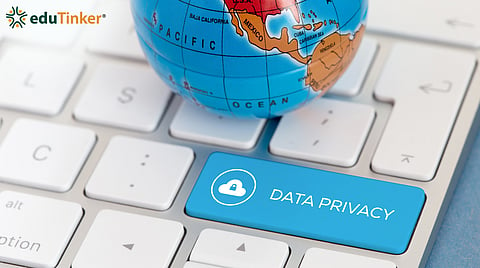

In today's digital age, data is a currency that holds immense power. From social media platforms and online shopping to educational institutions and healthcare systems, data is being collected, analyzed, and shared on an unprecedented scale. As students navigate this data-driven world, it becomes increasingly important for them to understand the concept of data privacy. This article explores why students need to comprehend data privacy and the potential consequences of not doing so.
Personal Security:
Understanding data privacy is crucial for personal security. When students grasp the importance of safeguarding their personal information, they can protect themselves from identity theft, scams, and cyberattacks.
Ethical Responsibility:
Students should be aware of the ethical responsibility associated with data privacy. Respect for the privacy of others' information is essential in an interconnected world, and understanding this concept can prevent unintentional data breaches.
Digital Citizenship:
Data privacy knowledge is an integral part of being a responsible digital citizen. As students learn about the implications of sharing personal data online, they can make informed decisions and contribute positively to the digital community.
Academic Success:
Data privacy extends to educational institutions. Students who understand this concept are less likely to fall victim to plagiarism or unauthorized sharing of academic work. They will also be better equipped to protect their research and intellectual property.
Professional Development:
In the professional world, data privacy is paramount. Employers and organizations handle sensitive data, and employees are expected to uphold data protection standards. Students who possess data privacy knowledge will be more attractive candidates for employment.
Data-Driven Society:
We live in a data-driven society where decisions are made based on data analysis. Understanding data privacy ensures that students can critically evaluate data sources and assess the implications of data collection on society.
Legal Implications:
Ignorance of data privacy laws is not an excuse. Students who understand these laws are less likely to unintentionally violate them, potentially avoiding legal consequences.
Personal Empowerment:
Data privacy education empowers students to take control of their digital lives. They can make informed choices about what data to share, with whom, and under what circumstances.
Protection from Exploitation
In a world where data is often monetized, students need to know how their information can be used. Understanding data privacy can protect them from being exploited by corporations seeking to profit from their personal data.
Global Perspective:
Data privacy is a global concern. Students who grasp its importance can engage in discussions about international data protection and privacy policies, contributing to the development of a safer and more secure digital world.
Preventing Cyberbullying:
Understanding data privacy can help students protect themselves from cyberbullying and online harassment. Knowledge of privacy settings and the importance of keeping personal information safe can act as a shield against digital abuse.
Preserving Reputation:
In the era of social media, a single lapse in data privacy can damage a student's reputation. Being aware of what information is visible to the public and managing their online presence can prevent future regrettable situations.
Data Literacy Skills:
Data privacy education enhances data literacy skills. Students learn not only to protect their data but also to critically assess the validity and reliability of information they encounter online, making them more discerning consumers of information.
Cybersecurity Awareness:
Students who understand data privacy are more likely to be aware of cybersecurity threats. This awareness can lead to proactive measures to defend against cyberattacks and phishing attempts.
Building Trust:
Trust is a valuable asset, both personally and professionally. Understanding data privacy is vital for building and maintaining trust with peers, colleagues, and customers who entrust their data to you.
Civic Engagement:
Data privacy is relevant to civic engagement and democracy. Students who comprehend data privacy can participate in discussions about government surveillance, data breaches, and the impact of data privacy on civil liberties.
Protecting Health Information:
With the increasing use of telemedicine and health apps, students need to understand the importance of safeguarding their health data. Knowledge of data privacy can prevent sensitive medical information from falling into the wrong hands.
Lifelong Skill
Data privacy is not a concept limited to the classroom; it's a lifelong skill. Students who learn about data privacy can continue to apply this knowledge throughout their personal and professional lives, adapting to evolving digital landscapes.
